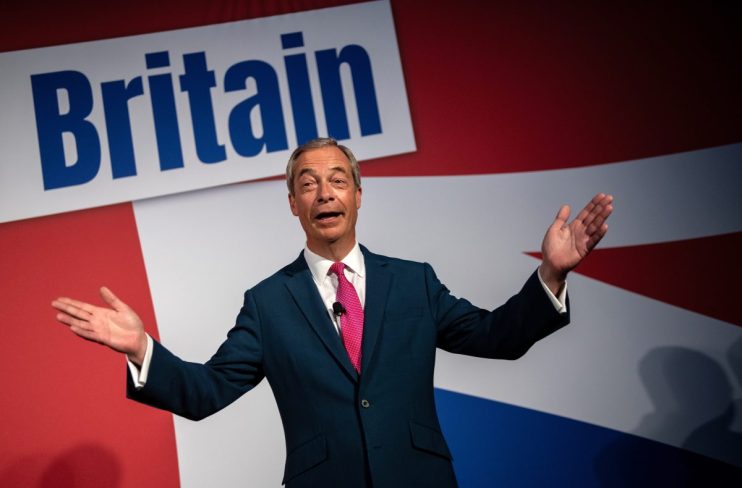Nigel Farage is a punishment the Tories deserve

Nigel Farage’s return is the worst-case scenario for the Tories, but their annihilation will be a consequence of the own failure to make the country more Conservative after 14 years, says Tom Jones
Genghis Khan once told the city leaders of Khiva, then part of the Khwarazmian Empire, that he was “the punishment of God. Had you not committed grave sins, God would not have sent a punishment like me upon you.”
If Nigel Farage is familiar with his Central Asian history, it is a quip he may wish to use on the campaign trail against the Conservatives. Not only is it true, but it carries a sense of grim foreboding; in just three years the Great Khan had conquered the empire, devastated its cities and laid waste to its lands. Farage has announced he is standing as Reform leader for at least five.
His return is the worst-case scenario for the Tories. Their fate now looks as sealed as the Khwarazmian Empire’s – and their defence strategy may be similar too. Khwarazm Shah Muhammad II, whose forces were vastly outnumbered and widely dispersed, decided to resist the Mongols by placing his troops in a few cities, hoping that these garrisons would prove so strong that the Mongols’ advance would simply grind to a halt. It was not to be; instead his forces were annihilated, piecemeal. Inexorably, the cities fell. Muhammad II, isolated, alone and unable to find any support, died destitute on an island in the Caspian Sea.
The Tories, predicted to win just 140 seats in the latest MRP poll, are already strengthening the garrison of their core vote with policies like national service and the quadruple lock on pensions. But Reform may have made even their most impregnable seats vulnerable; a squeeze on their core vote by a resurgent Reform could see them slip well below 50 seats.
But it is a problem entirely of their own making. In his speech Nigel Farage alluded to a movement happening across Europe, referring to the swath of right-wing populist parties that are growing increasingly influential across the continent; the AfD in Germany, PVV in Holland, National Rally in France, the Sweden Democrats. Britain, in fact, stands very much alone amongst European peers in not having a right-wing populist party surging in the polls, mostly as a result of Brexit and the FPTP electoral system.
The populist messages and appeal of these parties, much like Farage’s, has been the subject of mainstream commentary for years. The now-largely accepted theory is that these spasms of populism were expressions of resentment amongst voters left isolated by neoliberal economics and the hollowing out of communities and ‘meaning’.
This, as J Sorel argues, turns political questions “into psychological stories. Those who voted for Brexit were not voting to leave the European Union, but to give a ‘kick in the teeth’ to an establishment that had forgotten about them. The answer is never a redress of any objective grievance, but to ‘listen’ to them in the abstract, as if they were children.”
But these voters aren’t children, and the driving factors behind the populist wave really aren’t that difficult to understand. They have objective grievances against politicians that have, after 14 years of Conservative government, failed to deliver the policies they voted for. A reckless pursuit of net zero goals has seen our citizens’s living standards placed in danger; despite a near-constant ‘war on woke’, the country is markedly less conservative than it was 14 years ago, and increasing numbers of our institutions are surrendered to progressive ideology; despite promises to enable homeownership, housebuilding remains on the floor while prices soar like a Spitfire in June; despite pledging to reduce immigration at every general election of the last 20 years, immigration has climbed to unprecedented world historical highs.
Perhaps, had we not committed such grave sins, God would not have sent a punishment like Nigel Farage upon us.
Tom Jones is a writer and a Conservative councillor for Scotton & Lower Wensleydale